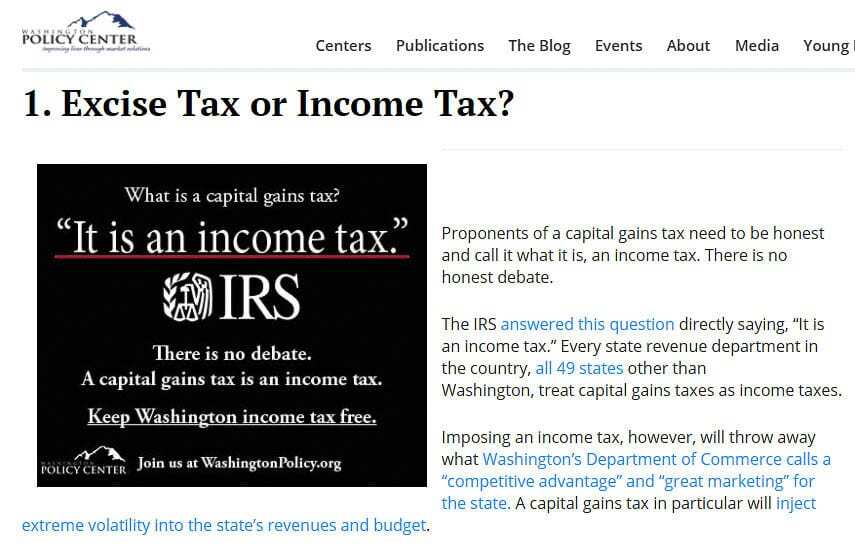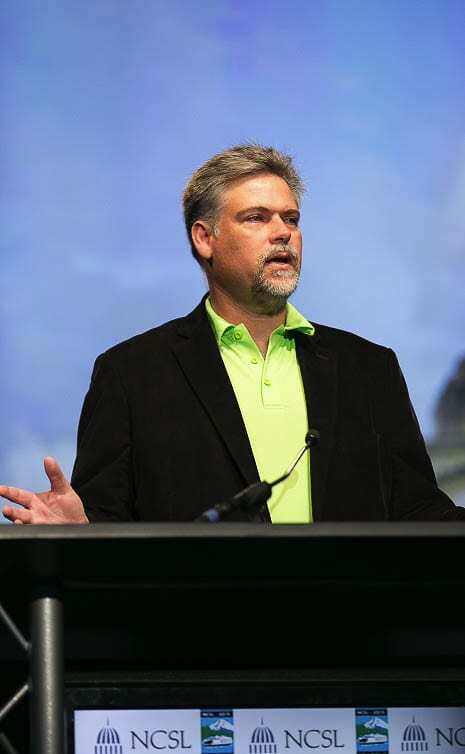Senators opposed the emergency clause; will they concur with House bill?
A new 7 percent income tax on capital gains would be imposed on the sale of stocks and bonds in excess of $250,000 under a measure approved Wednesday by the Washington State House of Representatives..
The measure passed on a 52-46 vote after nearly two days of debate and multiple amendments in the Democratic-led chamber.
On Tuesday night, the chamber rejected more than a dozen Republican amendments, including one that would have increased the standard deduction for joint filers to $500,000 (the marriage penalty) and another that would have removed a reference to the tax being necessary “for the support of state government and its existing public institutions.”
“The capital gains income tax is unnecessary, unconstitutional, unpopular and un-American,” said Rep. Vick Kraft (Republican, 17th District). “We have more than enough revenue coming into the state government to fund all the critical needs.”
“As of last month, $3.2B more in unexpected economic revenue growth is coming in, and the federal American Rescue Plan Ace (ARPA) alone gave our state government over $7B,” Kraft wrote in an email response to Clark County Today. “All this is in addition to the 2020 CARES Act and CRRSA federal funds the state also received.”

Rep. Chris Corry (Republican, 14th District) said that the goal of proponents is to set up a test case for the state Supreme Court as it relates to income taxes in general. A graduated income tax was enacted by initiative in 1932, passing with about 70 percent of the vote. But it was thrown out by the state Supreme Court a year later, which pointed to the state constitution’s call for uniform taxation on property.
If a capital gains tax is signed and holds up in court, opponents also say it would open the door for implementing a statewide income tax, which has been rejected by voters 10 times.
During the House floor debate, Rep. Noel Frame (Democrat, 36th District) said the bill would rebalance Washington’s tax code in a state where much of the revenue comes from taxes on sales, property and businesses.
“I’m voting against this because I truly believe this is a Trojan horse for a graduated income tax across all Washingtonians, not just the 1 percent,” Corry said.
“This is how we are rebalancing the tax code, for the wealthy to pay their fair share and working Washingtonians to finally get a break,” said Frame. She added that the bill was “a key tool of progressive tax reform.”
Yet a true “rebalancing of the tax code” would have required a reduction in the sales tax or some other regressive tax the poor now pay. That didn’t happen and therefore “working Washingtonians” didn’t get a break opponents pointed out.
Opponents also call the tax a particularly volatile one that is difficult to rely on for long-term funding. Rep. Drew Stokesbary (Republican, 31st District) called it “the most volatile tax that any state anywhere collects.”
Even as Democrats move SB 5096 closer to becoming law, they face questions — and fierce Republican opposition — about language inserted into it that would prevent a statewide referendum this fall.
Wednesday night’s passage brought Democrats perhaps the closest they’ve been in a decade to a long-running and largely elusive goal: making Washington’s tax system more progressive.

SB 5096 exempts a range of assets from the tax. That list includes retirement accounts, sales of real estate, livestock, timber and certain agricultural lands. The sale of a family-owned small business, owned for at least five years, that makes less than $10 million a year also would be exempt according to some news reports.
If it were to become law, the tax is estimated to raise roughly $550 million annually, beginning in fiscal year 2023. The version that passed Wednesday would put that revenue into the state’s Education Legacy Trust Account to be used for early learning and child care programs.
That referendum language could complicate a final vote in the Senate. In that chamber, Democrats last month passed SB 5096 by just a single vote, and only after they removed language in the initial bill to block a referendum.
“The key element is that several brave Democrats agreed to remove any emergency clause, that if the public sought a referendum on an income tax they could,” said Sen. Mark Schoesler (Republican, 9th District) on the John Carlson KVI radio show. “And that’s where the real question is, not if Democrats want a capital gains income tax. It’s whether they will allow the people to put a referendum out there rather than more expensive and time consuming lawsuits or initiatives.”
Carlson responded: “what the House did was very cynical. They said a capital gains income tax, it’s such an emergency. Nevermind the fact that we’ve got a surplus. Nevermind the fact there is no fiscal emergency. Nevermind, the fact we have billions more to spend than we thought we would have. It’s nevertheless such an emergency that we cannot allow the public to have the right of referendum.”
Schoessler replied: “The budget is not in trouble. We’ve had recovery. We’ve had truckloads of money from the other Washington and wisely set up a rainy day fund many years ago that’s there now when we needed it.”
Any revenue that goes toward funding fundamental governmental operations, in this case child care and education, is exempt from a referendum, House Speaker Laurie Jinkins (Democrat, 27th District) told reporters Tuesday. The language is in the bill to signal to the secretary of state that this tax is necessary for government, and therefore possibly exempt from a challenge by referendum.
Republicans argued that voters should have a say in whether the tax is enacted. If the governor signs the bill, the tax would go into effect 90 days after session, but the state wouldn’t get revenue from it until 2023.

Because of the delayed implementation, Rep. Ed Orcutt (Republican, 20th District) said voters should have a say in the tax.
“It is not an emergency,” he said. “It doesn’t need to go into effect immediately because the money doesn’t come in for two years.”
Republicans introduced multiple amendments to remove the emergency clause language, but all of them failed.
Schoessler said the use of the emergency clause was so convoluted that the staff lawyers had to decipher just how they did it.
House and Senate Democrats have written the capital gains tax into their proposed budgets. A final budget negotiated among House and Senate Democrats is set to be released later this week, just days before the end of the regular session.
Republicans have said there is no need for additional taxes when there is so much federal COVID-19 stimulus money coming into the state.
Rep. Joe Schmick (Republican, 9th District) said the state has “never been in a better financial position.”
“The IRS, states who have a capital gains tax, and previous court precedent have all determined that the capital gains tax is indeed an income tax,” said Kraft. “Our state constitution requires taxes on income to be uniform and no greater than 1%.”
SB 5096 violates the income tax parameters in our state constitution and the Democrats have already publicly acknowledged this capital gains income tax will likely end up in court, according to Kraft.
“The voters have voted against similar income tax policies 10 times,” said Kraft. “We need to listen to the people and their voice – they’ve said NO! on this issue. That should be the end of discussion.”
The bill now heads back to the Senate for final concurrence on amendments added by the House. The capital gains tax, along with the final two-year budget and a handful of other big proposals, need to pass the Legislature by the end of the session, scheduled for Sunday.





Guess the people don’t matter